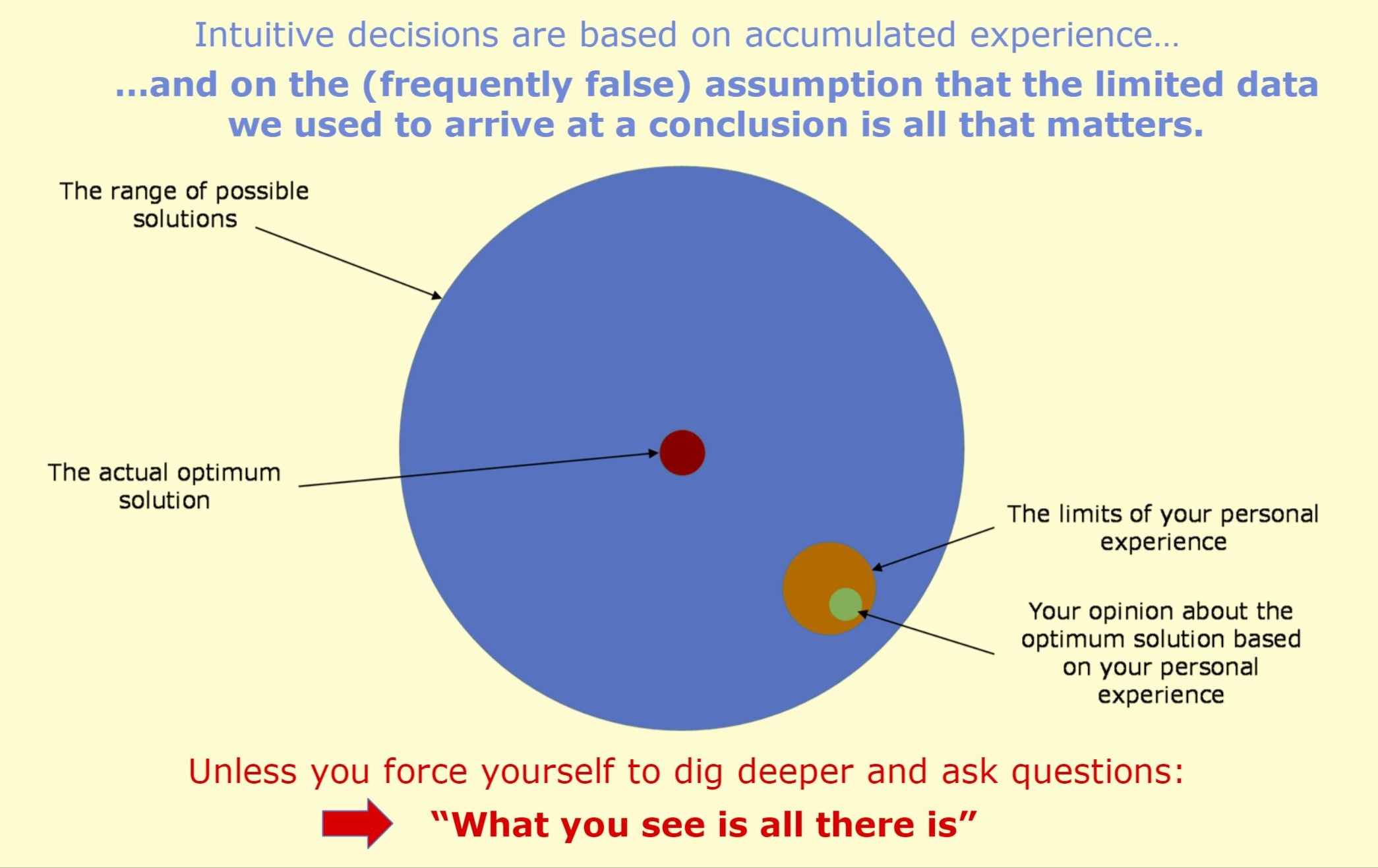As a Manager, most of your work is centered on people management, problem analysis, the search for optimum solutions and the effective implementation of these solutions.
Are you aware that unless you act consciously to avoid it, our brains allow us to make most of our judgments & decisions related to these tasks on the basis of very limited information?
Chances are you won't even notice that the information you have is often very insufficient. As long as you can build a coherent mental story out of the information that you already have, you assume that you know everything you need to know on the subject and jump to conclusions.
Daniel Kahneman, the author of the ground-breaking book on how we think and make choices, Thinking Fast and Slow, illustrates this process of hasty judgments & decision making (System I) with the following example :
“Consider the following question “ Will Mindik be a good leader? She is intelligent and strong…” An answer quickly came to your mind, and it was yes.
You picked the best possible answer based on the very limited information available, but you jumped the gun.
What if the next two adjectives were corrupt and cruel?
Take note of what you did not do as you briefly thought of Mindik as a leader. You did not start by asking. “What would I need to know before I formed an opinion about the quality of someone’s leadership? System 1 got to work on its own from the first adjective: intelligent is good, intelligent and strong is very good. This is the best story that can be constructed from two adjectives and System 1 delivered it with great cognitive ease. The story will be revised if new information comes in (such as Mindik is corrupt) but there is no waiting and no subjective discomfort. “
In other words, we mostly reach conclusions based on whatever information and associations that come most readily to our minds, generally asking ourselves no questions whatsoever about information that might be missing.
Jumping to conclusions in this manner may be efficient if your conclusions are likely to be correct and you can bear the costs of an occasional mistake. However, jumping to conclusions is risky, if not to say downright dangerous, when the situation is unfamiliar and the stakes are high. Furthermore, when we have a recent track record of personal success (the case of many high-flying young managers), we tend to be overconfident and thus rely far too much on our initial (intuitive) assessments (see image below).

Given this, when you know that the potential costs of poor judgement and decision making are high, wouldn’t you like to be able to use a set of tools which allow you to investigate the situation thoroughly yet efficiently before taking a leap?
Including 4 powerful methodologies, that is exactly what this training programme is designed to provide you with
Event Mapping: A highly versatile visual approach to overall problem evaluation & resolution
Human Factor Analysis: a rational approach to resolving human error and/or behavioural issues
Decision Analysis: A rational approach to decision-making that is applicable to any personal or professional decision
Risk Analysis: A pragmatic, qualitative approach to minimising the risks associated with any action plans you implement
In all of these of courses the emphasis is on learning what questions to ask to understand the issues and possible outcomes as thoroughly as possible before making decisions and implementing actions.
Thanks to this approach, at minimum, these courses will provide you with greatly heightened awareness of the issues you need to look out for when working with your teams and thus make you a better manager.
Bundle includes
Here are all the courses that are included in your bundle.
